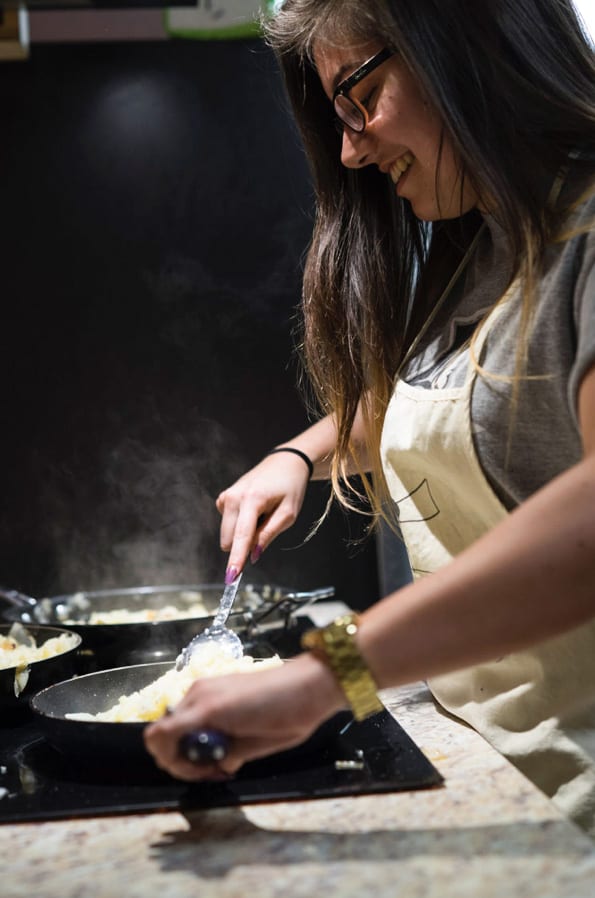by The Cowl Editor on February 7, 2019
Campus

Food: the universal energy source. Eating it is something many people have mastered. Preparing it, though, is a far less common skill to come by, especially among college students.
Sure, there may be the occasional student who is passionate about cooking, but it is far from the norm.
On a campus where a year does not go by without a freshman burning macaroni and cheese in a microwave, teaching students the basic skills of the kitchen, or at least some sort of appreciation for the process of cooking, is of particular importance.
Here at Providence College, there are many course requirements, ranging from philosophy to theology, quantitative reasoning to science. With the material covered through the Development of Western Civilization program here on campus, these additional courses in philosophy and theology can be difficult for students to swallow.
The real world application of these courses is debatable, and while it may enrich the mind to know the implications of Aristotle’s Nicomachean Ethics, this pales in comparison to the importance of knowing the skill of cooking.
While in college, many students opt to order food through Uber Eats or other forms of delivery instead of preparing their own meals. Certainly, there are fewer opportunities for underclassmen to make their own meals, seeing as their living spaces rarely have a communal kitchen. However, implementing a culinary course requirement would help these underclassmen, as well as upperclassmen, learn how to cook before they enter an apartment or off-campus living space.
In addition, it has become a part of PC’s culture to complain about the options at Raymond Dining Hall or Alumni Hall Food Court. More often than not, though, these students have not taken the time to get creative with the foods offered to create an option they find more appetizing.
Having students take a class in food preparation or some other academic study of the culinary arts would allow them to study flavors, assisting them in making their own meals from the options provided.
One could argue that we have a cooking club, and this is certainly a fantastic organization which provides an opportunity for students to learn how to prepare certain favorite foods. However, at the end of the day, it is a club, and by its very nature cannot address the issue of students who have no interest in acquiring these skills.
There are several courses offered in the history, biology, and chemistry departments which offer the opportunity to study the culinary world through a certain lens; including, You Are What You Eat or The Scientific Chef. Once again, though, these courses are optional and not required for students to take.
The College administration should consider adding some form of a culinary art course requirement for students on campus. Perhaps a broad requirement that can be fulfilled through participation in some of the above science classes, or maybe a newly developed course where students actively prepare dishes, learning food safety in the process.
Preparing students for life after college is, or should be, of the utmost importance to every university. Philosophy and theology can assist in developing mental processes, but basic skills such as cooking are equally important, as it is rarely more financially feasible to order out every night than to prepare meals at home.
At a school where requirements are in no short supply, adding a course requirement that would appeal to a wider range of students and also help them acquire real world skills would be a wise decision.
While it is important to teach students how to find food for thought here at PC, it is equally important to teach students how to provide food for their stomachs.